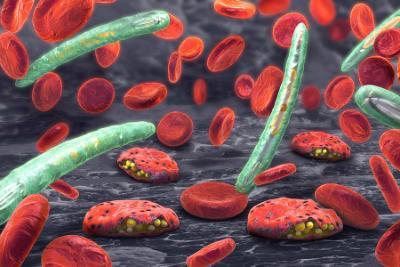 Vaccine experts at the University of Maryland School of Medicine have been developing and testing malaria vaccines for decades, since the first efforts by David Clyde in the 1960s. Today, we are evaluating many of the cutting-edge most promising vaccine candidates in our laboratories and clinics in Baltimore and in malaria-endemic regions throughout the world.
Vaccine experts at the University of Maryland School of Medicine have been developing and testing malaria vaccines for decades, since the first efforts by David Clyde in the 1960s. Today, we are evaluating many of the cutting-edge most promising vaccine candidates in our laboratories and clinics in Baltimore and in malaria-endemic regions throughout the world.
On our Baltimore campus, researchers are developing new strategies to overcome the complexity and diversity of malaria parasites. We are also using data collected from existing vaccines to better understand how parasites can escape vaccine-generated immune responses.
Our clinical researchers have conducted Phase 1 and Phase 2 clinical trials of several candidate malaria vaccines. To evaluate vaccine efficacy, we are one of the few research centers that routinely conducts a controlled human malaria infection. This technique involves exposing individuals who received a vaccine to the bites of mosquitos infected with Plasmodium falciparum malaria or injection with sporozoites. Results from a recent study of the PfSPZ Vaccine trial, which was developed by Sanaria, Inc. of Rockville, Maryland, showed that the vaccine can protect against at least two strains of malaria.
